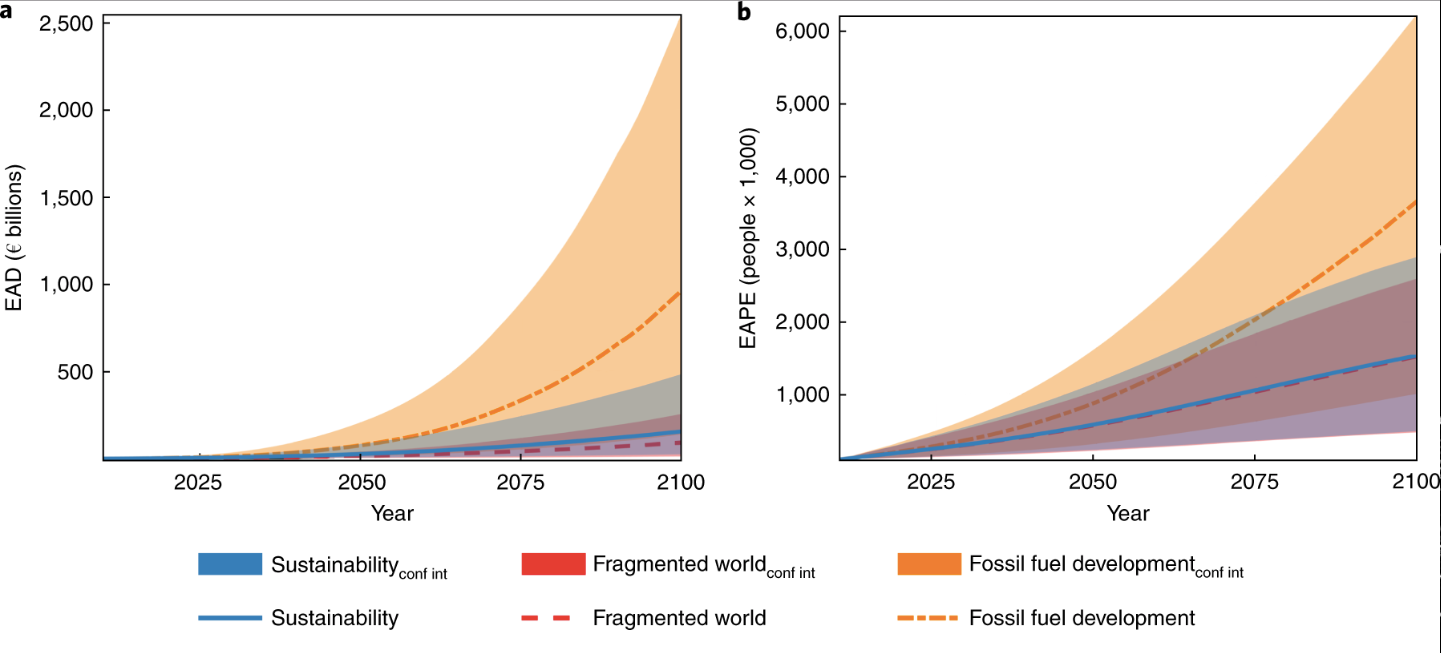Abstract
Rising extreme sea levels (ESLs) and continued socioeconomic development in coastal zones will lead to increasing future flood risk along the European coastline. We present a comprehensive analysis of future coastal flood risk (CFR) for Europe that separates the impacts of global warming and socioeconomic development. In the absence of further investments in coastal adaptation, the present expected annual damage (EAD) of €1.25 billion is projected to increase by two to three orders of magnitude by the end of the century, ranging between 93 and €961 billion. The current expected annual number of people exposed (EAPE) to coastal flooding of 102,000 is projected to reach 1.52–3.65 million by the end of the century. Climate change is the main driver of the future rise in coastal flood losses, with the importance of coastward migration, urbanization and rising asset values rapidly declining with time. To keep future coastal flood losses constant relative to the size of the economy, flood defence structures need to be installed or reinforced to withstand increases in ESLs that range from 0.5 to 2.5 m.

Fig. Projected evolution of coastal flood impacts aggregated at European level.
Vousdoukas, M. I., Mentaschi, L., Voukouvalas, E., Bianchi, A., Dottori, F., & Feyen, L. (2018). Climatic and socioeconomic controls of future coastal flood risk in Europe. Nature Climate Change, 8(9), 776-780. doi:10.1038/s41558-018-0260-4
